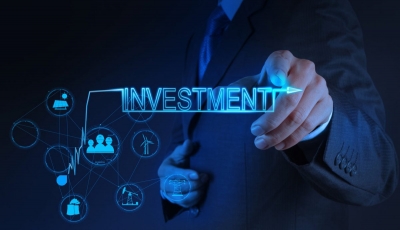How VCs view the moral universe of startups
By IANS | Updated: March 6, 2022 11:11 IST2022-03-06T10:48:03+5:302022-03-06T11:11:05+5:30
Chennai, March 6 Investment by private equity/venture capitalists or angel investors is a marriage contract with divorce clause. ...

How VCs view the moral universe of startups
Chennai, March 6 Investment by private equity/venture capitalists or angel investors is a marriage contract with divorce clause. One of the various factors taken into account by investors before investing is the moral hazard of the entrepreneurs.
And investing in a startup is like funambulism or tightrope walking needing skill, practice and safety net to reach across safety, said investors.
"At the end of the day, the venture capitalists/investors take the risk. We construct a portfolio of investments to diversify the risk. As a fund manager we are more of a risk taker and less risk averse," Sarath Naru, Managing Partner, Ventureast, one of the long standing venture capital firms in India told .
For startup investors taking risks is their game like the famous Tamil movie comedian Vadivelu dialogue "taking risk is like eating rusk for me."
While the books of accounts of a startup can show its financial condition, how do the investors assess the moral hazard of the founder/promoter is the moot question that has come up in the wake of BharatPe episode.
Indian business canvass has seen several fraudulent promoters and it is famously said: "In India companies go sick but not their promoters."
"Investing in a startup is like tightrope walking needing skill, practice and safety net to reach across safety. A lot of due diligence goes before writing out the cheque," Gopal Srinivasan, Managing Director and Chairman, TVS Capital Funds, a private equity company, told .
An investment banker, not wanting to be quoted, told : "The actual fact is a private equity or venture capital investor is an economic animal and is not here to promote entrepreneurial skill. Their template is simple as they have to return the money raised to their investors in 8-10 years. So, the time frame will be 3-4 years of investment in a startup, 3-4 years for value accretion and the remaining period for strategizing the exit route."
The investors spend time to know about the founder and also have a detailed probe done - due diligence as well as forensic audits - before writing out the cheque. The rigour of checking varies from fund to fund.
Terming it as a myth that some investment firms write out cheques just by speaking to the startup founders over phone, Srinivasan added investors also hire consultancy firms to scan the market for prospective investment avenues and do the background checks.
"It is easy to cross check about an entrepreneur. TVS Capital invests in companies whose founders are in the age group of 30-40 years by which time they would have left a strong trail about themselves," Srinivasan said.
"Moral hazard - Not a metric I am used to. I do not know any specifics or about a particular business. This is the role of the board. In today's environment, we cannot believe social media or sometimes media. So, you look at hard metrics and leave governance to the board or regulators. As an investor, I would look to the board," Kris Gopalakrishnan, Chairman, Axilor Ventures told .
Gopalakrishnan, one of the founders of Infosys wonders how one decides on these things with the limited information available.
"In startups, typically the VCs
Disclaimer: This post has been auto-published from an agency feed without any modifications to the text and has not been reviewed by an editor
Open in app